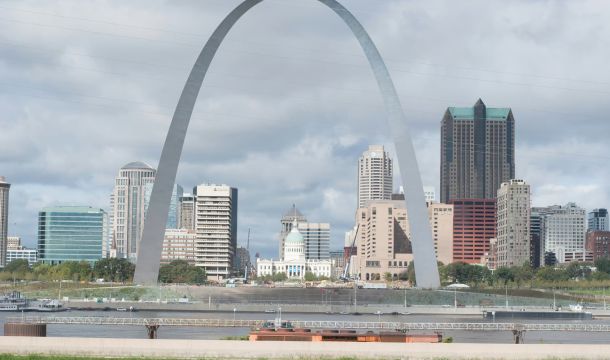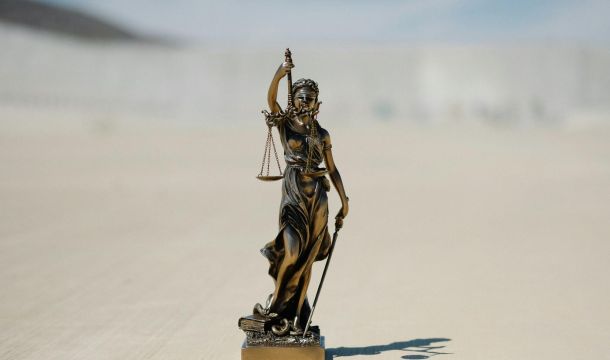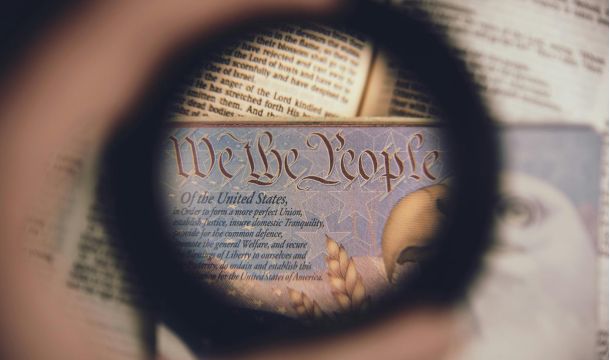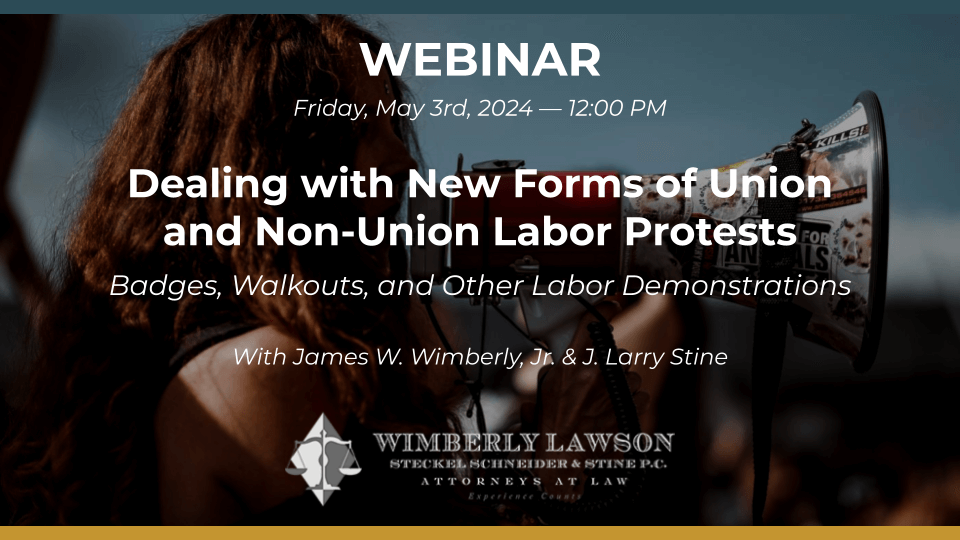Starbucks Union Campaign Demonstrates Textbook Study of Union Issues
The Starbucks union organizing campaign has been amazing, resulting in nearly 350 wins for unions in 37 states. The National Labor Relations Board (NLRB) has filed almost 100 complaints against the company for its responses to the campaign, and at the same time there has been a dramatic slowdown in the number of successful new union organizing wins.
Starbucks' Response to Organizing
According to recent administrative law judge (ALJ) rulings, Starbucks used a corporate-wide response to the organizing, involving an online messaging campaign aimed at convincing employees, called "partners," to reject union representation and instead entrust management to fix working conditions. Many "collaboration sessions" were held between top executives and employees, allowing the latter to make their needs known including improved wages and benefits. Starbucks relied heavily on its public communication platforms, including its official public website, https://starbucks.com, and a separate public website, https://One.Starbucks.com, dedicated to messaging on its employee benefit programs and the on-going organizing campaign among its workers. Emails between Starbucks officials were introduced into evidence showing that Starbucks actively considered how to design a raise for tenured employees to respond to the ongoing organizing campaign. Company President Howard Schultz personally attended the "collaboration sessions," both in-person and virtually, with small groups of 20-30 employees in multiple U.S. cities. While actual participation in the sessions were limited to employees at approximately 30 sites, Starbucks covered the internet with a description of the events, such as "inside collaboration sessions with Starbucks CEO Howard Schultz and partners." Thereafter, Starbucks posted an article with the link to a video of Schultz speaking at a management-only event in which he was described as discussing "learning from the collaborative sessions that are taking place . . . and promised to act on partner (employee) feedback." Schultz then announced that Starbucks had "identified over $200 million in investment . . . in training, wage and equipment" designed to improve retention and recruiting, as well as elevate the experience we deliver to our partners and our customers. He directly addressed the union organizing campaign, stating that while he understood that "young people" and "GenZ Americans" are under pressure from the 2008 global financial crisis, the Great Recession, and the global Coronavirus pandemic, and understandably viewed "the burgeoning labor movement" as a possible remedy, he continued, "We have a very different and vastly more positive vision for our company based on listening, connecting and collaborating directly with our people."
In implementing various wage and benefit enhancements, Starbucks stated "New pay and benefit changes will apply to stores where Starbucks has a right to unilaterally make these changes. Where Starbucks lacks the right to unilaterally make these changes (for example, stores where there is a union or union organizing), Starbucks will provide wage increases that were announced [earlier] and will otherwise comply with all applicable legal requirements."
An ALJ found that Starbucks violated the Act by intentionally withholding wage and benefit increases in response to union organizing and additionally by making unlawful announcements promising to address employees' concerns, informing employees that union organizing was futile and informing them that only non-union partners would receive the new pay and benefits.
The ALJ in the ruling stated that an employer has the right to treat represented and unrepresented employees differently, so long as the different treatment is not discriminatorily motivated. The ALJ found that Starbucks doled out higher wages and enhanced benefits based on the presence or absence of union organizing in a particular store, and that the provision not to extend the increases to its represented employees was unlawfully motivated by being calculated to discourage union activity. She ordered Starbucks to compensate thousands of unionized workers the wages and benefits they were denied. This decision is the first nationwide ruling against Starbucks in its resistance to the nationwide union campaign.
Other Legal Attacks on Starbucks' Response to Union
In related developments, Starbucks CEO Howard Schultz, in one of his listening tours of Starbucks stores, told a worker the following: "And the fact that I've come here, not to talk about a union issue, I've come here to address the issues that we need to address to improve the company," Shultz continued. "If you are not happy at Starbucks, you can go to work for another company." Another ALJ found that this statement constituted an illegal threat.
In another development, Starbucks was ordered by the U.S. Department of Labor (DOL) to comply with an administrative subpoena relating to potential violations of the reporting requirements under the Labor-Management Reporting and Disclosure Act, which calls on employers and unions to disclose certain financial transactions related to unions. The DOL contends that Starbucks must file the reports of its expenditures in response to worker organizing in Buffalo, N.Y. In the current DOL ruling, the issue is the obligation to respond to a subpoena, but the main case will address Starbucks' argument that DOL illegally changed its enforcement policy and that it would be a departure from previous practice. There is also a subpoena from the NLRB seeking internal Starbucks' policies on responding to union organizing campaigns, and an NLRB ruling requires Starbucks to produce its "Petition Store Playbook" or have the document's owners available to testify about accusations about unfair labor practices at a store in Connecticut. The NLRB lawyers have also accused Starbucks of seeking excessive subpoenas itself as a tactic to intimidate workers to slow down proceedings.
Congress Investigating NLRB's Alleged Bias
In one case, however, the NLRB Regional Director has ruled that a Starbucks store in Kansas that voted for a union must have the election voided because NLRB staffers communicated with the union about special voting arrangements for workers who didn't get mail ballots, while not keeping Starbucks informed. The NLRB official found that the disparity in communications "undermines the Region's appearance of neutrality." A panel of the House of Representatives in March subpoenaed information on allegations that the NLRB has improperly favored the union in Starbucks cases, particularly referencing this specific election.
Controversy about the conduct of Board officials in the Kansas election caused the NLRB's Inspector General to investigate and issue a report. Inspector General David Berry issued a report that the Regional Director's failure to properly supervise and manage the mail ballot election created the risk of "great reputational harm" that could hurt the NLRB's ability to conduct neutral elections. He called the handling of the election "gross mismanagement." This election appears to be the center of a Congressional inquiry into the NLRB's overall objectivity. The Inspector General's report was dated July 8, 2023, but was made public later by the House Committee on Education and the Workforce, with Chairwoman Virginia Fox saying in a statement that the report shows: "The Committee's ongoing investigation into the NLRB is justified."
Starbucks Settlements May Change During 2024
Starbucks appears already to have modified its policies for 2024, and more may be in store. An NLRB Administrative Law Judge ruled that Starbucks’ 2022 national wage increases violated federal labor law by omitting union facilities. This year, Starbucks has indicated that it will increase pay to nearly 400 unionized stores and that they will receive increases that are consistent with those from previous years, but no more than that. Starbucks will continue to omit the union stores from various changes in benefit policies and certain other policies. Starbucks’ position has been in the NLRB litigation that the labor laws require negotiations before they make such changes unilaterally in unionized stores. They are thus leaving the unionized stores behind the non-union stores in pay and benefit improvements. However, as the litigation mounts, Starbucks appears to be slowly changing its policies as it has been almost universally unsuccessful defending numerous NLRB complaints that have been issued. Among other things, due to public pressure including its own shareholders, Starbucks’ commissioned an independent assessment of the company’s labor practices, and the assessment found no evidence of an “anti-union playbook” or suggested interference with employees’ freedom to choose. It found the company lacked preparation for the wave of organizing and the local staff made mistakes because of no experience and insufficient training dealing with unions.
In other more recent legal developments at Starbucks, the NLRB has issued a nation-wide complaint alleging that Starbucks has refused to bargain collectively with the union following a series of union victories that began in late 2021. An interesting comparison is that the House of Representatives in Congress now allows collective bargaining agreements between members of Congress and their staff, but only a single collective bargaining agreement has been reached, of staffers of a Michigan Congressman who left office in January 2022. In January, the Supreme Court granted Starbucks’ petition for reviewing an NLRB ruling to resolve a split among federal circuit courts over the legal test to be used to evaluate NLRB requests for temporary injunctions against employers that are accused of violating the federal labor laws.
The best proof that change may be in store is a letter from Starbucks’ Chief Executive Officer sent in December to the Workers United President saying it is open to “ideas and rules of engagement on how bargaining could proceed.” About 350 of Starbucks’ 9,000 locations have voted to join a union but none has come close to getting a union contract. The two parties have even argued over the “ground rules” for the meetings, including whether workers should be allowed to participate via video conference. Each side has accused the other of refusing to meet, and Starbucks continues to ask the union to commit to conducting sessions without video and audio recordings. Starbucks proposes that negotiations proceed without disparaging comments about each other and maintaining the confidentiality of personnel matters. Nevertheless, communication from the Starbucks’ CEO to the union President suggests that Starbucks intends to conclude some of the collective bargaining agreements with the union this year, and indeed Starbucks has stated that result as a goal.
Related Content
Get Email Updates
Recent Content

Featured Federalist Article: Text Education in Muldrow v. St. Louis: The Supreme Court Just Made Title VII Cases Easier for Plaintiffs to Win

Judge Invalidates Joint Employer Rule, and Independent Contractor Rule Takes Effect

The Importance of Fairness in Employment to the Law and to Job Satisfaction

Major Employers Challenge Constitutionality of Labor Act

Starbucks' Big Change in Labor Policies

